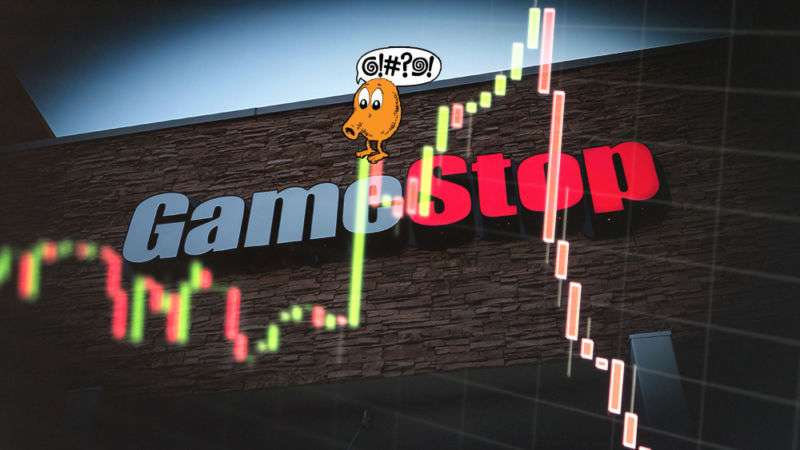
Game retailer GameStop says it can’t sell itself, sees stock dive 27%

International gaming retail chain GameStop announced on Tuesday that one major save-the-company decision—to find a private buyer for the company and its subsidiaries—had been called off.
The announcement ushered in the public company’s largest stock-value dip in over 10 years, seeing it plummet in one day from $15.49 to (as of press time) $11.28—a dive of roughly 27 percent.
The Texas-based gaming retailer had been linked to acquisition rumors, as The Wall Street Journal reported earlier this month that multiple private equity firms had been circling GameStop—and its subsidiaries, including the merch-focused ThinkGeek and the gaming magazine Game Informer. That report had suggested a deal might close by mid-February.
However, Tuesday’s statement indicated that prospective deals fell through “due to the lack of available financing on terms that would be commercially acceptable to a prospective acquirer.” The rest of the statement offers little clear hint of the company’s next steps beyond pumping the cash from a recent subsidiary sale into options such as “reducing the company’s outstanding debt, funding share repurchases, or reinvesting in core video game and collectibles businesses to drive growth.”
GameStop had already hinted at drastic action in calls to investors over the past year. The company had failed to satisfy growth-hungry investors in spite of its attempts to expand and diversify its used- and gaming-products sales reach with the acquisition of chains like Spring Wireless and SimplyMac. GameStop concluded its sale of Spring Wireless earlier this month for over $700 million, but even that didn’t jumpstart investors’ hopes. This month’s stock high of $15.93 is well short of its 2013 peak of over $46.
The gaming retailer, which emerged from the squished-together remains of Babbage’s, Software Etc., and FuncoLand in 2000, became a publicly traded company two years later. When it swallowed up EB Games in 2005, GameStop become arguably the biggest gaming retailer in the world. In the years since, the company has been bullish about creative solutions to plummeting used-game sales, mostly in the form of retail-chain acquisitions. But one of its biggest attempts—becoming its own game publisher—has fizzled with the low-performing likes of Has-Been Heroes and Song of the Deep.
In December, the company informed investors that it expected to miss expectations for its Q4 2018 report due to “underperformance of certain titles, weakness in pre-owned and recent sales promotions,” and a sales skew toward hardware that the company hadn’t anticipated.




